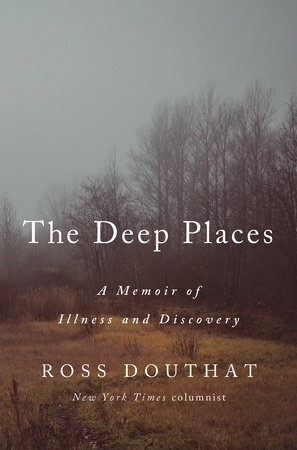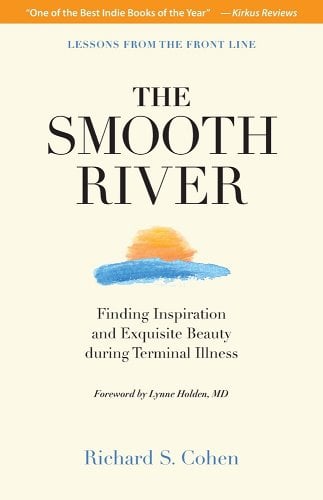End-of-life caregiving is an ancient practice that’s now re-emerging in the death positivity movement, which urges a shift in thinking about death as natural and not traumatic.
YOU MIGHT ALSO LIKE
CLEAR ALL
BY TOPIC
BY TEACHER
BY TYPE
FILTER

TOPIC
- Friendship (46)
- Grief (41)
- Cancer (40)
- Communication Skills (34)
- Death-Positive Movement (33)
- Life Challenges (32)
- Hospice (30)
- Death or Loss of a Loved One (28)
- Illness and Injury (26)
- Marriage (22)
- Neurodiversity (22)
- Afterlife (19)
- Intimacy (17)
- Compassion (16)
- Finding Meaning (14)
- Resilience (14)
- Autism (13)
- Living with Illness (13)
- Buddhism (12)
- Divorce and Breakup (12)
- Near-Death Experience (12)
- ADD/ADHD (11)
- Fellowship and Community (11)
- Trauma Healing (11)
- Death or Loss of a Child (10)
- Death or Loss of a Parent (10)
- Presence (10)
- Traumatic Grief (10)
- Handling a Loved One’s Illness (9)
- Athlete Well-Being (8)
- Empathy (8)
- Family Dynamics (8)
- Fear (8)
- Forgiveness (8)
- Love (8)
- Mindfulness (8)
- Trauma (8)
- Vulnerability (8)
- Awareness (7)
- Caregiver Well-Being (7)
- Parenting (7)
- Self-Healing (7)
- Toxic Relationships (7)
- Veteran Well-Being (7)
- Withholding (7)
- Activism/Service (6)
- Authenticity (6)
- Belonging (6)
- Consciousness (6)
- Decision Making (6)
- Emotional and Mental Health (6)
- Grit (6)
- Letting Go (6)
- Memoir (6)
- Passive-Aggressive Behavior (6)
- Past Lives and Reincarnation (6)
- Rebirth (6)
- Search for Purpose (6)
- Self-Reflection Practices (6)
- Speaking Your Truth (6)
- Tibetan Buddhism (6)
- Transitions (6)
- Work Relationships (6)
- Aging (5)
- Courage (5)
- Gratitude (5)
- Hope (5)
- Identity (5)
- Joy (5)
- Loss of Partner/Spouse (5)
- Mind-Body Connection (5)
- Psychology and Spirituality (5)
- Self-Care (5)
- Self-Development (5)
- Self-Discovery (5)
- Self-Love (5)
- Sex (5)
- Spiritual Growth (5)
- Suicide (5)
- Accepting Love (4)
- Addiction (4)
- Anger (4)
- Anxiety (4)
- Astral Projection (4)
- Chronic Health Conditions (4)
- Conflict Resolution (4)
- Connection (4)
- Disconnection (4)
- Female Friendship (4)
- Happiness (4)
- Immortality (4)
- Inner Peace (4)
- Intention (4)
- Leadership (4)
- Lovingkindness (4)
- Motherhood (4)
- Narcissism (4)
- Neuroscience (4)
- New Relationships (4)
- Optimism (4)
- Perception (4)
- Personal Development (4)
- Science and Spirituality (4)
- Self-Acceptance (4)
- Self-Esteem (4)
- Self-Expression (4)
- Self-Worth (4)
- Setting Limits and Boundaries (4)
- Spiritual Awakening (4)
- Spiritual Life (4)
- Stress (4)
- Stress Management (4)
- Suffering (4)
- The Feldenkrais Method (4)
- Trust (4)
- Well-Being (4)
- Autoimmune Disease (3)
- Chronic Pain (3)
- Community Healing (3)
- Dementia (3)
- Disabled Well-Being (3)
- Dysfunctional Childhood (3)
- Emotional Intelligence (EQ) (3)
- Growth Mindset (3)
- Guilt (3)
- Honoring Emotion (3)
- Karma (3)
- LGBTQIA Relationships (3)
- Life-Altering Injury (3)
- Oneness (3)
- Physical Health (3)
- Regret (3)
- Relationship with Time (3)
- Self-Realization (3)
- Self-Reckoning (3)
- Spiritual Healing (3)
- Transformation (3)
- Values (3)
- Women’s Well-Being (3)
- Acceptance (2)
- Adaptability (2)
- Attachment Theory (2)
- BIPOC Well-Being (2)
- Building Character (2)
- Collaboration (2)
- Cross-Cultural Dynamics (2)
- Death or Loss of a Sibling (2)
- Depression (2)
- Ego Dissolution (2)
- Empowerment (2)
- Enneagram (2)
- Failure (2)
- Faith (2)
- Gender Challenges (2)
- Generosity (2)
- Goddess (2)
- Grace (2)
- Highly Sensitive People (2)
- Inner Life (2)
- Inner Strengths (2)
- Integrative Medicine (2)
- Kindness (2)
- LGBTQIA Sexuality (2)
- Loneliness (2)
- Loss of an Animal Companion (2)
- Male Friendship (2)
- Meditation (2)
- Mentoring (2)
- Mindfulness Practices (2)
- Moral Philosophy (2)
- Nonviolence (2)
- Philosophical Approaches (2)
- Poetry (2)
- Prayer (2)
- Psychology (2)
- Retirement (2)
- Self-Actualization (2)
- Self-Compassion (2)
- Self-Limiting Beliefs (2)
- Self-Reliance (2)
- Shame (2)
- Social Anxiety (2)
- Social Justice (2)
- Spiritual Development (2)
- Talk Therapy (2)
- Unfulfilled Career (2)
- Visions and Hallucinations (2)
- War (2)
- Wholeness (2)
- Work Challenges (2)
- Zen Buddhism (2)
- Abandonment (1)
- Academic Struggles (1)
- Access to Education (1)
- Anger Management (1)
- Asking for Help (1)
- Black Well-Being (1)
- Brain Health (1)
- Buddha Nature (1)
- Chakras (1)
- Challenges with Teens (1)
- Channeling (1)
- Child’s Emotional Growth (1)
- Child’s Trauma (1)
- Chronic Anxiety (1)
- Chronic Fatigue (1)
- Clairvoyance and Precognition (1)
- Codependency (1)
- Collective Trauma (1)
- Compassion Fatigue (1)
- Confidence (1)
- Connection with Nature (1)
- Criticism and Rejection (1)
- Dharma (1)
- DMT (1)
- Domestic Abuse (1)
- Drug Addiction (1)
- Ego (1)
- Emotional Labor (1)
- Endurance (1)
- Entrepreneurship (1)
- Fatigue (1)
- Female Empowerment (1)
- Focus (1)
- Freedom (1)
- God (1)
- Habit Formation (1)
- Hero’s Journey (1)
- Holism (1)
- Holotropic Breathwork (1)
- Honoring Ancestors (1)
- Household Labor (1)
- Human Potential (1)
- Humanitarian Aid/Relief Work (1)
- Imagination and Creativity (1)
- Indigenous Well-Being (1)
- Infidelity (1)
- Inflammation (1)
- Inspiration (1)
- Interdependence (1)
- Judaism (1)
- Jungian Analysis (1)
- Kids and Sports (1)
- LGBTQIA Well-Being (1)
- Life Force Energy (1)
- Longevity (1)
- Love Languages (1)
- Managing Energy (1)
- Masculine/Feminine Dynamics (1)
- Men’s Well-Being (1)
- Midlife Crisis (1)
- Mindfulness Meditation (1)
- Motivation (1)
- Native American Beliefs (1)
- Neopaganism (1)
- Neuroplasticity (1)
- Othering (1)
- Past Life Regression (1)
- Patience (1)
- Peak Performance (1)
- Positive Psychology (1)
- Positive Thinking (1)
- Post-Traumatic Growth (1)
- Poverty/Economic Inequality (1)
- Psilocybin (1)
- Psychedelic Journey (1)
- Psychedelic-Assisted Therapy (1)
- Psychic Abilities (1)
- PTSD (1)
- Quantum Physics (1)
- Racial Healing (1)
- Racial Justice (1)
- Racism (1)
- Raising Daughters (1)
- Relationship with Money (1)
- Ritual (1)
- Self-Control (1)
- Self-Mastery (1)
- Shadow (1)
- Shamanism (1)
- Shared-Death Experience (1)
- Social Responsibility (1)
- Soul Mission (1)
- Spiritual Direction (1)
- Spiritual Practices (1)
- Spiritual Quest (1)
- Spirituality and Health (1)
- Stoicism (1)
- Taoism (1)
- Telepathy (1)
- The Divine (1)
- Transgender Well-Being (1)
- Transpersonal Psychology (1)
- Work Ethic (1)
- Work-Life Balance (1)
- Yoga (1)
- Youth Activism (1)
FILTER

TEACHER
- Atul Gawande (5)
- Esther Perel (5)
- Thich Nhat Hanh (5)
- Elizabeth Lesser (4)
- Frank Ostaseski (4)
- Gary Chapman (4)
- Julie Schwartz Gottman (4)
- BJ Miller (3)
- Eckhart Tolle (3)
- Gay Hendricks (3)
- Jeff Foster (3)
- Joan Halifax (3)
- Maya Angelou (3)
- Mitch Albom (3)
- Oprah Winfrey (3)
- Ram Dass (3)
- Ramani Durvasula (3)
- Stanislav Grof (3)
- Stephen Levine (3)
- William Bloom (3)
- Brendon Burchard (2)
- Brené Brown (2)
- Craig Hamilton (2)
- Cynthia Bourgeault (2)
- Elaine Aron (2)
- Harville Hendrix (2)
- Helen LaKelly Hunt (2)
- Jack Canfield (2)
- Jane E. Brody (2)
- John Bradshaw (2)
- John Gottman (2)
- Lori Gottlieb (2)
- Marie Forleo (2)
- Mark Victor Hansen (2)
- Megan Devine (2)
- Neale Donald Walsch (2)
- Nikki Mirghafori (2)
- Ondrea Levine (2)
- Raymond Moody (2)
- Rick Hanson (2)
- Russell Brand (2)
- Sam Harris (2)
- SARK (2)
- Sharon Strand Ellison (2)
- Tara Brach (2)
- Terri Cole (2)
- Amit Goswami (1)
- Andrew Holecek (1)
- Anna Sale (1)
- Anne Lamott (1)
- Aristotle (1)
- Bernie S. Siegel (1)
- Biet Simkin (1)
- Buddha (1)
- Caroline Myss (1)
- Chan Khong (1)
- Chögyam Trungpa (1)
- Colleen Saidman Yee (1)
- Cyndi Dale (1)
- Daniel Amen (1)
- David J. Wolpe (1)
- David Spiegel (1)
- David Whyte (1)
- Deepak Chopra (1)
- Diane Stein (1)
- don Miguel Ruiz (1)
- Donna Jackson Nakazawa (1)
- Dorothy Firman (1)
- Edward Hallowell (1)
- Elizabeth Gilbert (1)
- Forrest Hanson (1)
- Gabor Maté (1)
- Gangaji (1)
- Gary Zukav (1)
- Huston Smith (1)
- Iyanla Vanzant (1)
- Jean Shinoda Bolen (1)
- Jeffrey Mishlove (1)
- Jetsunma Tenzin Palmo (1)
- John O’Donohue (1)
- John Welwood (1)
- Joseph Goldstein (1)
- Julia Cameron (1)
- Karen Casey (1)
- Kate Johnson (1)
- Kathleen Dowling Singh (1)
- Kathlyn Hendricks (1)
- Kenneth Pelletier (1)
- Kim Eng (1)
- Linda Graham (1)
- Lissa Rankin (1)
- Louise Hay (1)
- Mark Nepo (1)
- Matthieu Ricard (1)
- Mel Robbins (1)
- Melanie Joy (1)
- Michio Kaku (1)
- Mirabai Bush (1)
- Norman Fischer (1)
- Oliver Sacks (1)
- Panache Desai (1)
- Pema Chödrön (1)
- Phillip Moffitt (1)
- Pope Benedict XVI (1)
- Rachel Naomi Remen (1)
- Ralph Metzner (1)
- Rob Bell (1)
- Rumi (1)
- Russ Hudson (1)
- Shefali Tsabary (1)
- Simon Sinek (1)
- Stan Tatkin (1)
- Starhawk (1)
- Stephen Cope (1)
- Stephen Covey (1)
- Terry Real (1)
- The Dalai Lama (1)
- Thomas Moore (1)
- Thubten Chodron (1)
- Tony Gaskins Jr. (1)
- Valarie Kaur (1)
- Yongey Mingyur Rinpoche (1)
- Zainab Salbi (1)
- Zinovia Dushkova (1)










